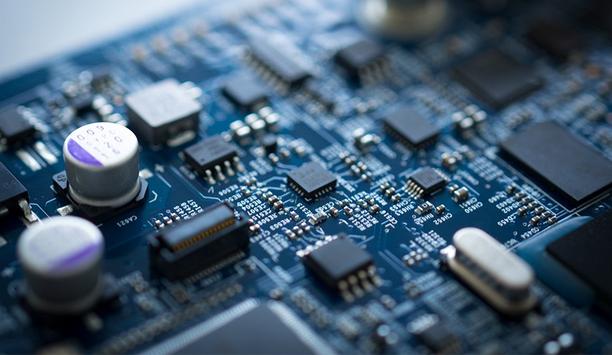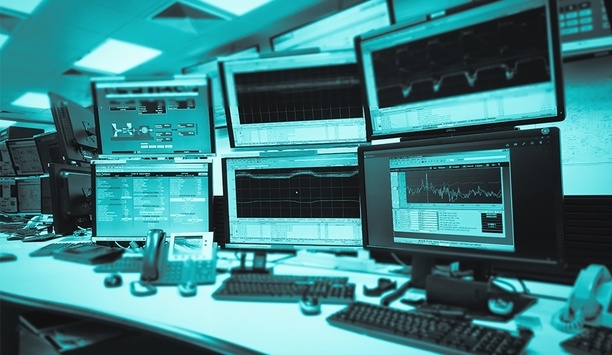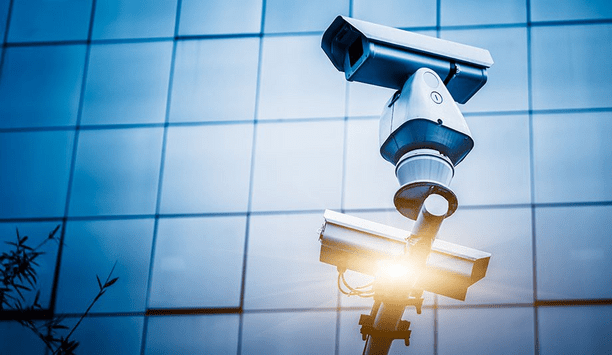Network / IP security - Round table discussions
When technology performs a required task effectively, there is little reason to upgrade to the ‘next big thing’. In this regard, the physical security market is notoriously slow to change. Much of yesterday’s most robust and dependable equipment is still in place at thousands of customer sites, still performing as well as the day it was installed. However, there comes a point when any technology becomes outdated. We asked this week’s Expert Panel Roundtable: Which securi...
Security technology has been a vibrant and successful market for decades now, but sometimes the public is not aware of those successes. Awareness in some cases is limited because security technologies work ‘behind the scenes’ to keep everyone safe. In other cases, the industry may be seen in a negative light, based on misinformation about topics such as surveillance and privacy. How can we get the word out about our industry’s successes? We asked this week’s Expert Panel...
Small and medium-sized businesses (SMBs) make huge contributions to the economy overall. Considered individually, they may not be as large as companies in the enterprise market, but they have big requirements when it comes to security. SMBs also present unique challenges to security manufacturers and integrators seeking to serve their needs. We asked this week’s Expert Panel Roundtable: What are the security challenges of protecting small and medium-sized businesses (SMBs)?
Our Expert Panel Roundtable is an opinionated group. However, for a variety of reasons, we are sometimes guilty of not publishing their musings in a timely manner. At the end of 2020, we came across several interesting comments among those that were previously unpublished. Following is a catch-all collection of those responses, addressing some of the most current and important issues in the security marketplace in 2021.
We are several weeks into 2021, and it is already shaping up to be an eventful year. The happenings and trends from 2020 will likely carry over into the new year, but in a fast-moving industry such as ours, there will also be additional trends to watch. Looking toward the year ahead, we asked this week’s Expert Panel Roundtable: What will be the biggest security trends in 2021?
As an industry, we often speak in buzzwords. In addition to being catchy and easy to remember, these new and trendy industry terms can also reflect the state of the security market’s technology. In short, the latest buzzwords provide a kind of shorthand description of where the industry is - and where it’s going. We asked this week’s Expert Panel Roundtable: What new buzzword(s) rose to prominence in the security industry in 2020? (And how do they reflect industry trends?)
What a year 2020 was for the security industry! There were vast challenges that could not have been foreseen at the beginning of the year. It is safe to say that the events of 2020 defied all industry prognosticators. However, is that any reason not to hope our expectations looking ahead to 2021 will be much closer to reality? Can we possibly benefit from looking ahead and trying to plan for the challenges of the year ahead? We asked this week’s Expert Panel Roundtable: What will be the se...
As a subset of the larger economy, the security industry is bound to feel the effects of an economic downturn. Such was the case in 2020 when the COVID-19 pandemic undermined economic growth and presented a brand new set of challenges to business. The security industry has been able to pivot toward emerging opportunities, but that success has been offset by broader economic challenges. We asked this week’s Expert Panel Roundtable: What impact, positive or negative, has the larger economy h...
Artificial intelligence is more than just the latest buzzword in the security marketplace. In some cases, smarter computer technologies like AI and machine learning (ML) are helping to transform how security operates. AI is also expanding the industry’s use cases, sometimes even beyond the historic province of the security realm. It turns out that AI is also a timely tool in the middle of a global pandemic. We asked this week’s Expert Panel Roundtable: How is artificial intelligence...
Facial recognition is the latest technology to be targeted because of concerns about privacy. If such concerns cloud the public perception, they can be harmful to technology markets. Whether the concerns are genuine or based on misinformation is often beside the point; the practical damage has already been done. But beyond market demand, what is the impact of privacy concerns on technology innovation? We asked this week’s Expert Panel Roundtable: Are privacy concerns stifling innovation in...
Video storage has been a challenge since the days of VCRs and videotape. Storing images is a central need for any video systems, especially one that is focused on the forensic and investigative aspects of video. Today, digital video is stored on hard drives and even in the cloud. Increasingly, video is considered “data” that drives a variety of video analytics and even artificial intelligence (AI) applications. We asked this week’s Expert Panel Roundtable: What are the new tren...
New software developments have dominated technology innovation in the physical security industry for years, making more things possible to the benefit of integrators and end users. However, hardware is another important piece of the puzzle. No matter how great your software, the system doesn’t perform unless the hardware works too. In our enthusiasm over software developments, let’s not overlook the latest in the hardware world. We asked this week’s Expert Panel Roundtable: How...
Retrofit projects provide new levels of physical security modernisation to existing facilities. However, retrofits come with their own set of challenges that can frustrate system designers and defy the efforts of equipment manufacturers. We asked this week’s Expert Panel Roundtable: What are the biggest challenges of retrofit projects, and how can they be overcome?
The first half of 2020 has been full of surprises, to say the least, and many of them directly impacted the physical security market. The COVID-19 pandemic created endless new challenges, and the physical security market has done our part to meet those challenges by adapting technology solutions such as thermal cameras and access control systems. In the second half of 2020, we can all hope for a return to normalcy, even if it is a “new normal.” In any case, technology will continue t...
Ten years is a long time, but it seems to pass in an instant in the world of security. In terms of technology, 2010 is ages ago. Changes in the market have been transformative during that decade, and we called on our Expert Panel Roundtable to highlight some of those changes. We asked this week’s panelists: What was the biggest change in the security industry in the 2010-2019 decade?
The new year is several weeks old, so it is safe to say that many of our New Year resolutions have fallen by the wayside. Despite the limited success of our personal resolutions, the new year is a great time to take stock, look ahead, and plan to make 2020 the best year yet. Thinking about our industry as a whole, we asked this week’s Expert Panel Roundtable: What should be the security industry’s “New Year’s resolution?”
2019 was a big year for the Expert Panel Roundtable. The range of topics expanded, and we had more participation from more contributors than ever before. In closing out the year of contemplative discussions, we came across some final observations to share. They can serve both as a postscript for 2019 and a teaser for a whole new year of industry conversations in our Expert Panel Roundtable in 2020.
The new year comes with new opportunities for the security industry, but what technologies will dominate our discussions in 2020? Topics such as artificial intelligence (AI) and HCI (hyperconverged infrastructure) became familiar in conversations during 2019, and they are likely to dominate our thoughts again in the new year. But other buzzwords are also gaining steam, such as “blockchain” and “frictionless access control.” Connectivity and the cloud will also be timely t...
Cloud applications are an everyday facet of business these days, exemplified by systems such as Office 365, Salesforce.com and Dropbox. The physical security market is also embracing the cloud after overcoming some initial concerns and thanks to improvements in cloud offerings. We asked this week’s Expert Panel Roundtable: which security markets are likely to embrace the cloud?
Securing large campus environments can be particularly demanding and requires a range of technology solutions. In effect, a campus may represent a dozen or more individual facilities to be secured, in addition to protecting the overall environment. Seeking more insight into the number and variety of needs of securing a campus, we asked this week’s Expert Panel Roundtable: What are the security challenges of protecting large campus environments?
Along with the integration of security and other systems in an enterprise environment comes a need to centralise monitoring and control of the unified network. A control room is at the center of managing integrated systems, providing the focal point to collect information from a variety of sensors, analyse the data, and then respond appropriately. The technologies that drive these functions are changing and evolving, thus increasing the efficiency and efficacy of systems. We asked this week&rsqu...
While unpacking our bags from a trade show, it is interesting to consider the dominant themes and trends we heard and saw at the show. So it is with the recently concluded Global Security Exchange (GSX) show in Chicago, presented by ASIS International. Amid all the product promotion, training sessions, networking and tired feet at the show, what really stood out? We asked this week’s Expert Panel Roundtable: What was the big news at the GSX 2019 trade show in Chicago?
The high cost of thermal imaging cameras historically made their use more likely in specialised law enforcement and military applications. However, lower pricing of thermal imaging technologies has opened up a new and expanding market for thermal cameras in the mainstream. We asked this week’s Expert Panel Roundtable: What are the new opportunities for thermal cameras in mainstream physical security?
Fire and security systems are two elements of the same mission: To keep buildings and their occupants safe. However, the two systems often operate independently and may not be integrated. Should there be more integration and what are the pitfalls? We asked this week’s Expert Panel Roundtable: What are the challenges and opportunities of integrating security and fire systems?
An aging employee population and the influx of a new generation of workers and customers is driving change in the physical security industry. Millennials – those born in the 1980s and mid-1990s – are especially impacting how the industry operates, the technologies it produces, and the customers it serves. This tech-savvy generation grew up with the Internet at their fingertips. They embrace innovation in all its glory and expect it to play a seamless role in their lives – and w...
The new school year is a good time to reflect on the role of security in protecting our schools. From video to access control to some newer technologies, our Expert Panel Roundtable found plenty to talk about when we asked this week’s question: How does security technology make our schools safer?
Driven by technology developments such as voice recognition, smart devices and the Internet of Things, our homes are getting “smarter” all the time. Increasingly, we expect our residential environments to be responsive to our voice commands, whether we are adjusting a thermostat, turning on a light, or lowering the window shade. Smarter home integration yields new opportunities and challenges for home security, too, which contributes an element of safety and protection to the conveni...
One impact of Chinese companies entering the physical security market has been an erosion in product pricing, creating what has been called the "race to the bottom". However, political forces and cybersecurity concerns have presented new challenges for Chinese companies. Adding cybersecurity increases costs, and the addition of more functionality to edge devices is another trend that has impacted product pricing. We asked this week's Expert Panel Roundtable: Has price erosion ended (or slowed do...
Artificial intelligence is on the verge of changing the face of multiple industries – from healthcare to entertainment to finance, from data security to manufacturing to the cars we drive (or that will drive themselves!) In the physical security market, AI has garnered a lot of attention as a buzzword and as a harbinger of things to come. We asked this week's Expert Panel Roundtable: What security markets are most likely to embrace artificial intelligence (AI)?
In the digital age, software is a component of almost all systems, including those that drive the physical security market. A trend toward hardware commoditisation is making the role of software even more central to providing value to security solutions. Software developments make more things possible and drive innovation in the market. We asked this week's Expert Panel Roundtable: How do software improvements drive physical security?
Maximising security and performance
DownloadGuide for HAAS: New choice of SMB security system
DownloadSecurity practices for hotels
DownloadAccess control system planning phase 2
DownloadThe key to unlocking K12 school safety grants
Download


































